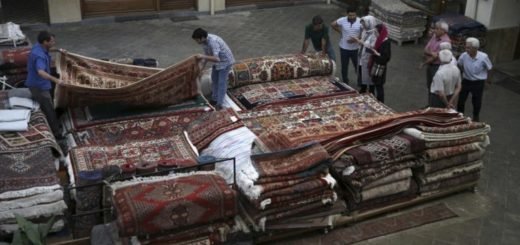Hagia Sophia Reconversion: A Mixed Bag of Compliments and Complications for Turkey

In a revolutionary move, the Council of States, Turkey’s top court, pronounced that Hagia Sophia will be reconverted into a Mosque from a Museum. Hagia Sophia has a glaring history. Built as a patriarchal cathedral of Constantinople between 532 and 537 A.D during the reign of Roman Emperor Justinian I, the Church of Hagia Sophia was converted into the Great Mosque of Ayasofya in 1453 when the Ottoman Sultan Mehmed II defeated Emperor Constantine XI. The site had originally been carrying a pagan temple before the church was built. After the fall of the Ottoman Empire after World War I, the doors of Ayasofya was opened to a secular Turkey and the rest of the world as a museum by Kemal Ataturk in 1935. The architectural marvel was made part of the UNESCO World Heritage List in 1985.
Eighty-five years down the line, a hard-line Turkish President, Recep Tayyip Erdogan has taken a huge step towards reviving Turkey’s Ottoman identity by rooting for Hagia Sophia reverting to being a mosque, housing regular prayers. This transformation has sent out a lot of messages including the diminishing impact of secular reforms brought up by General Ataturk and importantly, Turkey’s aspirations to challenge the status quo in the Muslim world. President Erdogan’s public statement on the issue connected Hagia Sophia to Al-Aqsa mosque, Islam’s third holy site hints much. As this incident has been attracting mixed reactions from across the world, the Turkish media has been carrying overwhelming support. Although, the voices of the Turkish public look divided. While Erdogan has certainly appealed to the religious-nationalist fervour and his populist base, a major portion of the society has expressed its disapproval.

Internationally, Greece has been the first and the fiercest of the critics of the museum’s conversion into a mosque. Earlier, in May 2020, it had condemned Turkey for reading verses from Quran inside Hagia Sophia as a mark of veneration for the Ottoman Empire’s take over of the erstwhile Church. Greece accused Turkey of violating the convention that regulated UNESCO World Heritage Sites and had appealed to the body to object Ankara. This has been part of a series of disagreement between Turkey and its neighbour in the Mediterranean. Other members of the European Union (EU) have also shown their disappointment and warned Turkey of an ensuing mistrust with the European Union. Dismissing EU’s message might cost Turkey its stakes in its ties with Europe. Surprisingly, the United States has taken a moderate tone to express its “disappointment” about Turkey’s decision. The statement of the State Department reads, “The United States views a change in the status of Hagia Sophia as diminishing the legacy of this remarkable building….a much-needed bridge between those of differing faith, traditions and cultures.”. The statement from Washington D.C did not portray any kind of stricture that could affect U.S- Turkey relations. This may be because the impact of the change in the status of Hagia Sophia has got to do more with the Orthodox Churches in Russia than the evangelical Christians who dominatingly support Trump’s administration.
The voices from Russia’s Orthodox Churches were loud enough, condemning the court’s ruling for hurting the sentiments of scores of Christians around the world. In contrast, Kremlin took a different stand, announcing that deciding the future of Hagia Sophia is Turkey’s business even though Russia acknowledges the cultural and civilisational significance of the site and regrets the decision as it may only stir up tensions in the region. Disregarding the souring criticisms on Turkey, President Erdogan declared that the matter is strictly domestic and concerns only the internal political system of Turkey.
Zooming into the Muslim ummah, the majority of the Arab world is rejoicing the reconversion of the museum into a mosque. Hamas and the Muslim Brotherhood have vocally expressed their appreciation of Turkey’s daring decree. The UAE rather avoided the religious route and took to warn Turkey about its lack of concern about preserving a site of historical significance and stressed on protecting its value. Amidst narratives of Turkey trying to compete with Saudi Arabia for Islamic supremacy, Riyadh has not commented yet on Hagia Sophia. Tehran, on the other hand, has accepted Ankara’s move and has also declared that it is an internal matter of Turkey. Other states showing support are Indonesia and Pakistan on who Turkey has been relying on recently during a time when its ties with important Arab states are worrisome.

Hagia Sophia’s change in status is not just about reviving its previous identity as a mosque but is just one of Erdogan’s forward move to bring back the Ottoman fervour to Turkey by building on the religious, nationalist mood and challenge the existing order in West Asia. While Turkey has been attracting and shoving both compliments and complications into its bag, how its leader, President Erdogan, manages to turn them to his and the state’s advantage is a whole new ball game increasingly manifesting in front of Turkey.


















